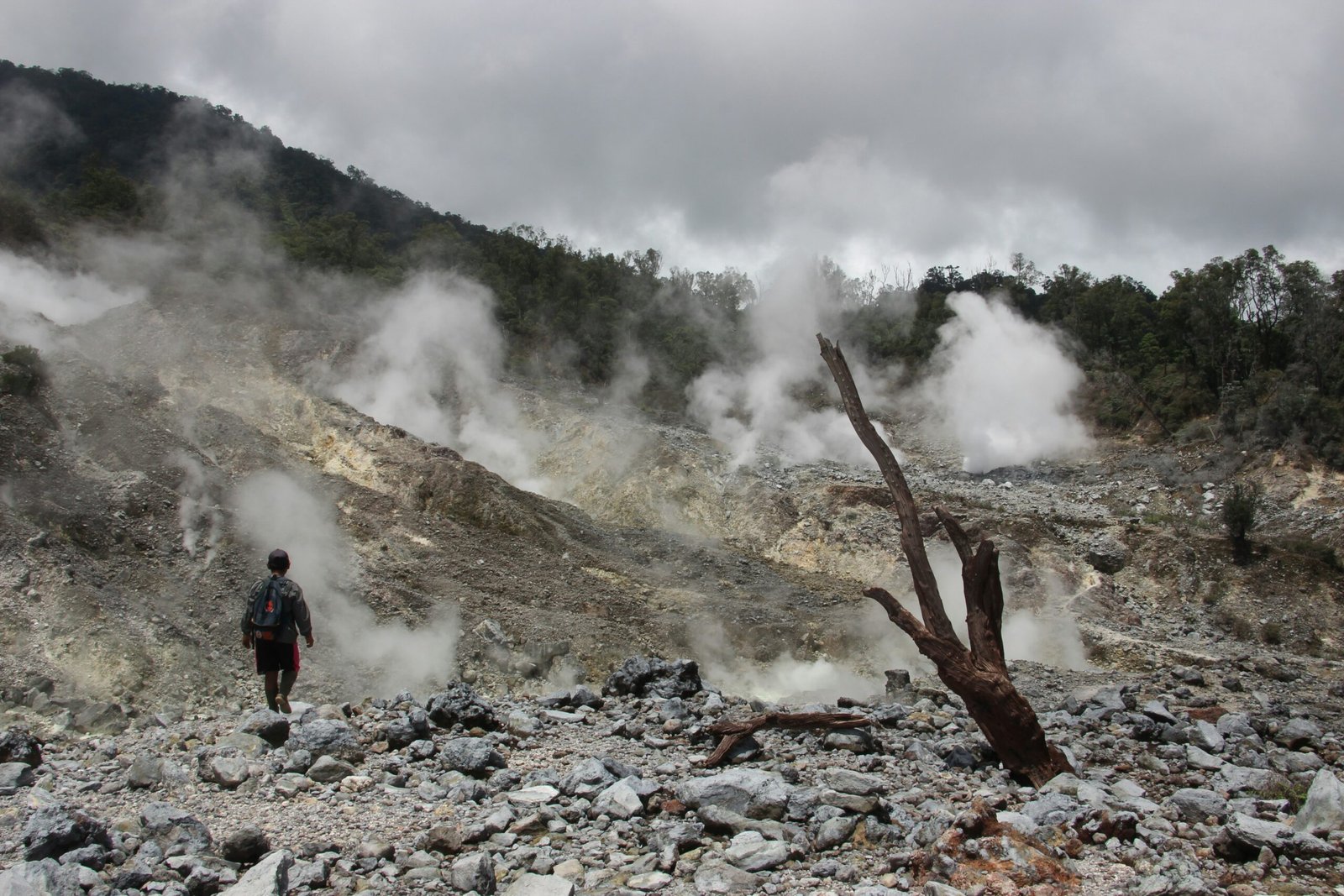
One of the most captivating aspects of venturing into the wild is the opportunity to immerse yourself in the untouched beauty of nature. Far away from the concrete jungles and crowded streets, the remote wilderness offers a sense of tranquility and serenity that is hard to find elsewhere. As you step into this pristine environment, you will be greeted by breathtaking landscapes, vibrant flora, and a symphony of wildlife.
But this adventure is not just about escaping the noise and pollution of the city; it’s also about ensuring that we leave behind as little impact as possible. Eco-friendly travel has become increasingly important in recent years, as more and more people recognize the need to preserve and protect our natural resources. By adopting sustainable practices and making conscious choices, we can enjoy the wonders of the wilderness while minimizing our ecological footprint.
So, how can you embark on an eco-friendly adventure in the remote wilderness? There are several ways to do so. One option is to choose accommodations that prioritize sustainability. Look for eco-lodges or campsites that are built using locally sourced materials, utilize renewable energy sources, and have minimal impact on the surrounding ecosystem. These establishments often employ local communities, contributing to the economic development of the region.
Another way to minimize your impact is by practicing Leave No Trace principles. This means being mindful of your actions and leaving the environment exactly as you found it. Pack out all your trash, dispose of waste properly, and avoid damaging vegetation or disturbing wildlife. By following these principles, you can ensure that future generations will be able to enjoy the same pristine wilderness that you experienced.
Additionally, consider participating in eco-friendly activities during your adventure. Instead of motorized transportation, opt for hiking, biking, or kayaking to explore the surroundings. These activities not only allow you to connect more intimately with nature but also reduce carbon emissions. You can also engage in wildlife conservation efforts, such as volunteering for research projects or supporting local organizations that work towards preserving endangered species.
As you venture deeper into the wilderness, take the time to educate yourself about the local ecosystem and its inhabitants. Learn about the flora and fauna that call this place home, and understand the delicate balance that exists within the ecosystem. By gaining knowledge and appreciation for the natural world, you will develop a deeper connection and a greater desire to protect it.
So, if you’re ready to escape the chaos of city life and embark on an unforgettable adventure, consider venturing into the wild. Immerse yourself in the untouched beauty of nature, while also being mindful of your impact. By choosing eco-friendly accommodations, practicing Leave No Trace principles, engaging in sustainable activities, and educating yourself about the local ecosystem, you can make the most of your wilderness experience while preserving it for future generations.
When we embark on eco-friendly adventures, we become active participants in the preservation of our environment. These adventures offer us a chance to witness firsthand the impact that human activities can have on the natural world. Whether it’s hiking through a pristine forest, snorkeling in a coral reef, or kayaking in a tranquil river, we are able to observe the intricate web of life and understand the interconnectedness of all living beings.
Moreover, eco-friendly adventures provide us with valuable educational opportunities. As we explore different ecosystems, we can learn about the diverse flora and fauna that inhabit them. We may come across rare and endangered species, and through the guidance of knowledgeable guides, we can gain insights into their behaviors and the threats they face. This knowledge not only enriches our understanding of the natural world but also empowers us to become advocates for conservation.
Another important aspect of eco-friendly adventures is the opportunity to support local communities and contribute to their sustainable development. Many eco-tourism initiatives are designed to benefit local economies by providing employment opportunities and supporting local businesses. By choosing eco-friendly adventures, we can ensure that our travel dollars have a positive impact on the communities we visit.
Furthermore, eco-friendly adventures often prioritize responsible and low-impact travel practices. This means that accommodations and transportation options are carefully selected to minimize carbon emissions and waste. For example, eco-lodges may be powered by renewable energy sources, and tour operators may use electric vehicles or encourage travelers to use public transportation. By choosing these options, we can reduce our carbon footprint and contribute to the fight against climate change.
Finally, eco-friendly adventures offer us a chance to disconnect from the fast-paced world and reconnect with ourselves and the natural world. In today’s digital age, where we are constantly bombarded with notifications and distractions, spending time in nature can be a welcome respite. It allows us to slow down, breathe in fresh air, and appreciate the simple joys of life.
In conclusion, eco-friendly adventures are not just about having fun and exploring new places. They are about taking responsibility for our planet and making conscious choices that promote sustainability. By engaging in these adventures, we can become ambassadors for the environment, inspiring others to do the same. So, let’s embark on eco-friendly adventures and make a positive difference in the world.
When planning an eco-friendly adventure, it is crucial to choose a destination that aligns with your values of sustainability and conservation. Look for places that prioritize environmental protection and have implemented measures to minimize their ecological footprint.
One such destination is the Amazon rainforest in South America. Known as the “lungs of the Earth,” the Amazon is home to an incredible array of flora and fauna. By visiting the Amazon, you not only get to witness its breathtaking beauty but also support the local communities that are working tirelessly to protect this vital ecosystem.
Another option is the Arctic region, where you can witness the stunning landscapes of ice and snow. However, it is essential to choose tour operators that follow strict guidelines to ensure minimal disturbance to the fragile Arctic ecosystem.
For those seeking a more tropical getaway, the Seychelles in the Indian Ocean is a perfect choice. This archipelago of 115 islands is known for its pristine beaches, crystal-clear waters, and abundant marine life. The Seychelles has taken significant steps to protect its fragile ecosystem, including designating large areas as marine protected areas and implementing sustainable tourism practices.
If you prefer a mountainous adventure, consider visiting Costa Rica. This Central American country is renowned for its rich biodiversity and commitment to sustainability. With over 25% of its land protected as national parks and reserves, Costa Rica offers countless opportunities for eco-tourism, from exploring lush rainforests to hiking up active volcanoes.
For those interested in cultural immersion, Bhutan, a small kingdom nestled in the Himalayas, is a must-visit destination. Bhutan is not only known for its stunning landscapes but also for its unique approach to sustainable development. The country measures its success based on Gross National Happiness rather than Gross Domestic Product, prioritizing the well-being of its people and the preservation of its natural environment.
These are just a few examples of eco-friendly destinations that offer unforgettable experiences while promoting sustainability and conservation. When choosing your next adventure, take the time to research and select a destination that shares your commitment to protecting the planet.
Camping and Wilderness Survival
Another eco-friendly activity that allows you to connect with nature on a deeper level is camping and wilderness survival. Pitching a tent in the wilderness and spending a night under the stars can be a truly transformative experience. It allows you to disconnect from the modern world and appreciate the simplicity and beauty of nature.
When planning a camping trip, choose designated campsites that have minimal impact on the environment. Follow leave-no-trace principles by properly disposing of waste, using biodegradable products, and leaving the campsite as you found it. Additionally, consider learning basic wilderness survival skills, such as building a shelter, starting a fire, and finding edible plants, to further enhance your eco-friendly adventure.
Eco-Friendly Volunteering
If you are passionate about making a positive impact on the environment and local communities, consider participating in eco-friendly volunteering activities. Many organizations offer opportunities to contribute to conservation efforts, sustainable farming, reforestation projects, and community development initiatives.
When choosing an eco-friendly volunteering program, research the organization thoroughly to ensure they have a genuine commitment to environmental and social responsibility. Look for programs that prioritize local empowerment, sustainable practices, and long-term impact. By volunteering your time and skills, you can actively contribute to the preservation of natural resources and the well-being of local communities.
Eco-Tourism and Cultural Experiences
Eco-tourism combines travel with environmental conservation and cultural experiences. It promotes sustainable practices, supports local economies, and encourages cultural exchange. By engaging in eco-tourism activities, you can learn about different cultures, traditions, and ways of life while minimizing your ecological footprint.
When participating in eco-tourism, choose tour operators and accommodations that prioritize sustainability, respect local cultures, and contribute to the well-being of communities. Seek out opportunities to interact with local communities, learn about their customs, and support local businesses. By doing so, you can have a meaningful and enriching travel experience while positively impacting the environment and local communities.
Practicing Sustainable Travel
While engaging in eco-friendly adventures, it is essential to practice sustainable travel habits to minimize your impact on the environment. Here are some tips:
Reduce Your Carbon Footprint
Consider offsetting your carbon emissions by supporting projects that reduce greenhouse gas emissions. Additionally, choose eco-friendly transportation options, such as trains or buses, whenever possible. If flying is unavoidable, opt for airlines that have implemented carbon offset programs.
One way to reduce your carbon footprint is to pack light. The heavier your luggage, the more fuel is required to transport it. By packing only the essentials and choosing multi-purpose clothing items, you can significantly reduce the weight of your luggage and subsequently decrease the amount of fuel consumed during your travels.
Choose Eco-Friendly Accommodation
Look for accommodations that have implemented sustainable practices, such as energy efficiency, waste reduction, and water conservation. Eco-lodges and eco-resorts are excellent options that prioritize environmental stewardship without compromising on comfort.
Another way to support sustainable accommodation is to opt for hotels and resorts that have embraced renewable energy sources. Many establishments now utilize solar panels or wind turbines to generate electricity, reducing their reliance on fossil fuels and minimizing their carbon footprint.
Support Local Communities
When engaging in eco-friendly adventures, make an effort to support local communities and contribute to their economic development. Choose local tour operators, stay in locally-owned accommodations, and purchase souvenirs from local artisans. By doing so, you are not only immersing yourself in the local culture but also helping to uplift the communities that depend on tourism.
In addition to supporting local businesses, consider participating in community-based tourism initiatives. These initiatives allow travelers to directly engage with local communities, learn about their traditions, and contribute to their sustainable development. Whether it’s volunteering at a local school or participating in a community-led conservation project, these experiences create meaningful connections and leave a positive impact on the places you visit.


